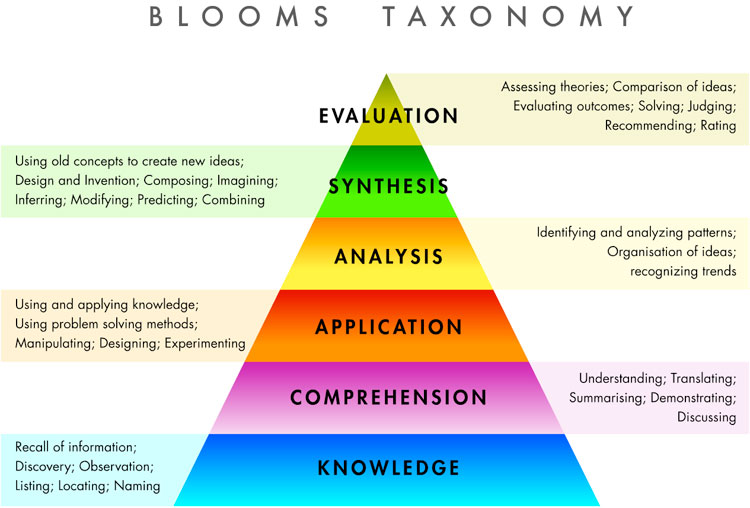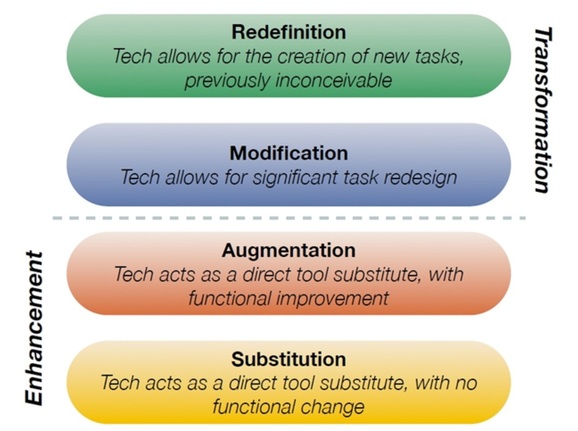 I am going to attempt to write this blog while my kitten hovers over me... (see I'm not joking)
I am going to attempt to write this blog while my kitten hovers over me... (see I'm not joking)Firstly I am going to talk about de Bono's Thinking Hats, then move on to 'What is Pedagogy' and then onto Bloom's Taxonomy and the SAMR model.
The Six Thinking Hats® Tool Kit
Blue Hat Thinking- Process
| |
White Hat Thinking- Facts
| |
Green Hat Thinking - Creativity
| |
Yellow Hat Thinking- Benefits
| |
Black Hat Thinking - Cautions
| |
Red Hat Thinking - Feelings
| |
(http://www.debonoforschools.com/asp/six_hats.asp)
Beginning this activity, my view on mobile phones was a definitive 'no way". However going through the scaffolding questions through the hats I found myself questioning my beliefs. Before completing the activity i read through other people's ideas on the topic. This gave me more of an insight into other ways of thinking which in turn made me think about the topic from different perspectives. Some issues i find with having personal mobile phones in class include, monitoring students access to make sure they are looking at the right things and internet safety.
The learning theories I have linked with this topic is 'Social Constructivism' and 'Connectivism'. The wiki activity was based off of Social Constructivism as it was a collaboration of ideas and Connectivism in that it is using technology to participate in the activity.
What is Pedagogy?
Every teacher teaches differently. There isn't necessarily a 'good' or 'bad' pedagogy method. A 'good' method is one that achieves the desired learning outcome. Students all learn differently and what may be considered a good method for some students might not be a good method for other students. It is up to the teacher to discover what methods are best for each student and find a happy medium.
Bloom's Taxonomy and SAMR

(https://juliaec.files.wordpress.com/2011/04/blooms_taxonomy.jpg)
Bloom's Taxonomy was created in 1956 to promote higher order thinking. Through activities the students are able to apply new knowledge to not just remember the facts (rote learning) but actually understand the concepts at a higher understanding. The process includes introducing student held knowledge, analysing this knowledge, deriving and strengthening knowledge and theory from this analysis, and then moving towards evaluation of the knowledge therefore creating culmination of learning.
SAMR is A Model for Enhancing Instructional Technology Integration.
(http://www.schrockguide.net/samr.html)
The SAMR model is similar in design to Bloom's Taxonomy as the re-designed taxonomy is technologically based and helps students enhance their ICT skills and transform their knowledge into a deeper understanding and the SAMR model does the same. The enhancement helps students with the ICT skills and the transformation side helps students gain a deeper understanding of content through technology.
References:
Candace M (2013) SAMR in 20 Seconds, retrieved from: https://www.youtube.com/watch?v=us0w823KY0g
Donald Clark (1999-2015) Bloom's Taxonomy on Learning Domains, retrieved from: http://www.nwlink.com/~donclark/hrd/bloom.html#cognitive
Google Images: https://juliaec.files.wordpress.com/2011/04/blooms_taxonomy.jpg
Kathy Schrock (2013-2015) Kathy Schrocks Guide To Everything, retrieved from http://www.schrockguide.net/samr.html

No comments:
Post a Comment